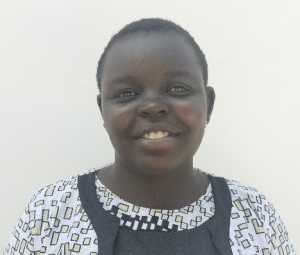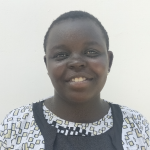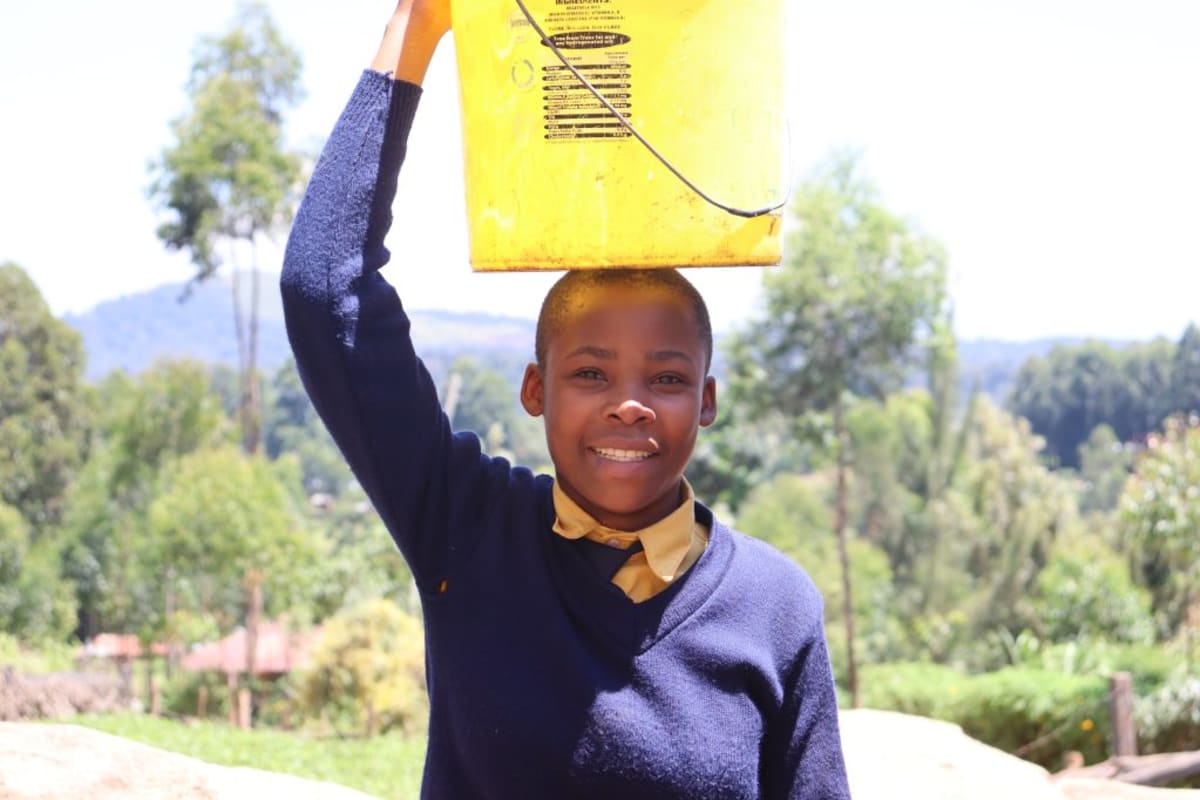September, 2022: Irukose Primary School Rain Tanks Project Complete!
Irukose Primary School in Kenya now has access to two sources of safe, reliable, clean water thanks to the completion of their rain tanks! We also installed new latrines and handwashing stations and trained students and staff on improved sanitation and hygiene practices. Together, these components will unlock the opportunity for these students to live better, healthier lives.
13-year-old Brighton W. recounted what life without clean water was like for him and his fellow students. "We have been having numerous challenges of unreliable water in the school which used to eat [up] much of our time for studies—when going to fetch water outside the school compound, being absent [from] school [after] contracting waterborne diseases, or leaving lessons in order to seek medications. But now, with reliable safe water, I am sure to perform quite well in my studies, having curbed the areas that used to eat [up] time which could have been utilized for studies."
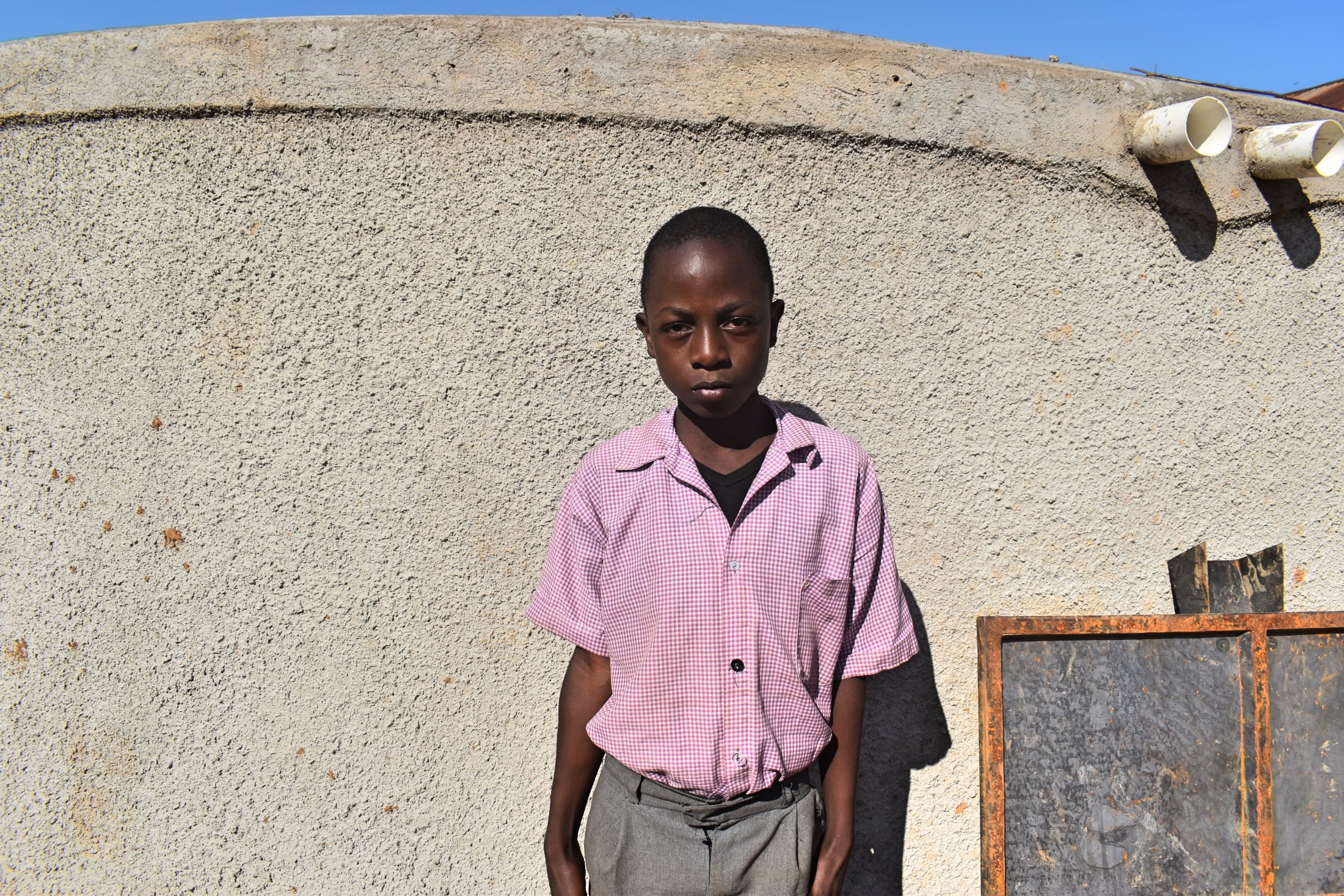
Brighton at one of the new rain tanks.
Brighton is now excited about his future and has plans for his new free time. "[I] am very grateful for [you] coming to assist us from the water challenges we have been experiencing. Now, since we have water sources within the school compound, [I] am very optimistic that my performance will improve because now [I] am having enough time to utilize for studies as opposed to before. More importantly, I will also get time to play with my friends since now we have precious time as opposed to before, where time set for games [was] used to search for water."
Teachers were just as excited as the students about the new rain tanks on campus.
"Reliable, safe water will impact my life [in] several ways," said 44-year-old teacher Sally Inganza.

Sally stirs soap during our hygiene training.
"One, I will be sure of drinking safe [water] from the known water point as opposed to before where we have been drinking anything called 'water' because students [would] get water from different sources. Besides that, I will be having plenty of time for teaching my students, and also student-teacher contact will improve. Since we will be treating water from the water point, the waterborne and water-related ailments will be [kept] at bay. Besides that, I am sure performance will also improve having in mind time [affects] studies as well."
How We Go From Ground to Rain Tanks
Construction for these 75,000-liter rain tanks was successful!
Parents, staff, and students helped our artisans gather everything needed for construction. The school community provided meals and accommodations for the tanks’ artisans. Locals helped our artisans with manual labor, too.

Students gather gravel to aid in the tank construction process.
The process officially began with our staff and school administration scouting around the school compound for the best rain tank locations. The sites need enough land and nearby buildings with good, clean roofing to catch the rainwater.
Then, we cleared the sites by excavating the soil to make level ground for the tank foundations. We cast the foundations by laying big stones on the level ground and reinforcing them using steel wire, concrete, and waterproof cement. We affixed the drawing and drainage pipes as we spread the foundations.

Rocks laid for one of the tanks' foundations.
Next, we formed the walls using skeletons of rebar and wire mesh with sugar sacks temporarily tied to the outside as backing. We attached the frames to the foundations’ edges to start the Ferro-cementing process. The sugar sacks are removed once the interiors receive their first two layers of cement. We layered the cement until six layers were in place, ensuring long-lasting construction.

Inside the tanks, we cast one central and four support pillars each to ensure the domes do not cave in once cemented. Meanwhile, we plastered the inner walls and roughcast the outer walls.
We dug and plastered the access areas to the taps outside the tanks, installing short staircases. We constructed soak pits in front of the access areas where spilled water will drain from the access areas through the ground. The pits help to keep the tap areas dry and tidy.

Dome construction began after the walls settled. We attached skeletons of rebar, wire mesh, and sugar sacks to the tanks’ walls before cementing and plastering, using similar techniques to the wall construction. We included small manhole covers to allow access for future cleanings, water treatments, and repairs. We propped long wooden poles (about 75 of them!) inside each tank to support the domes while they cured.
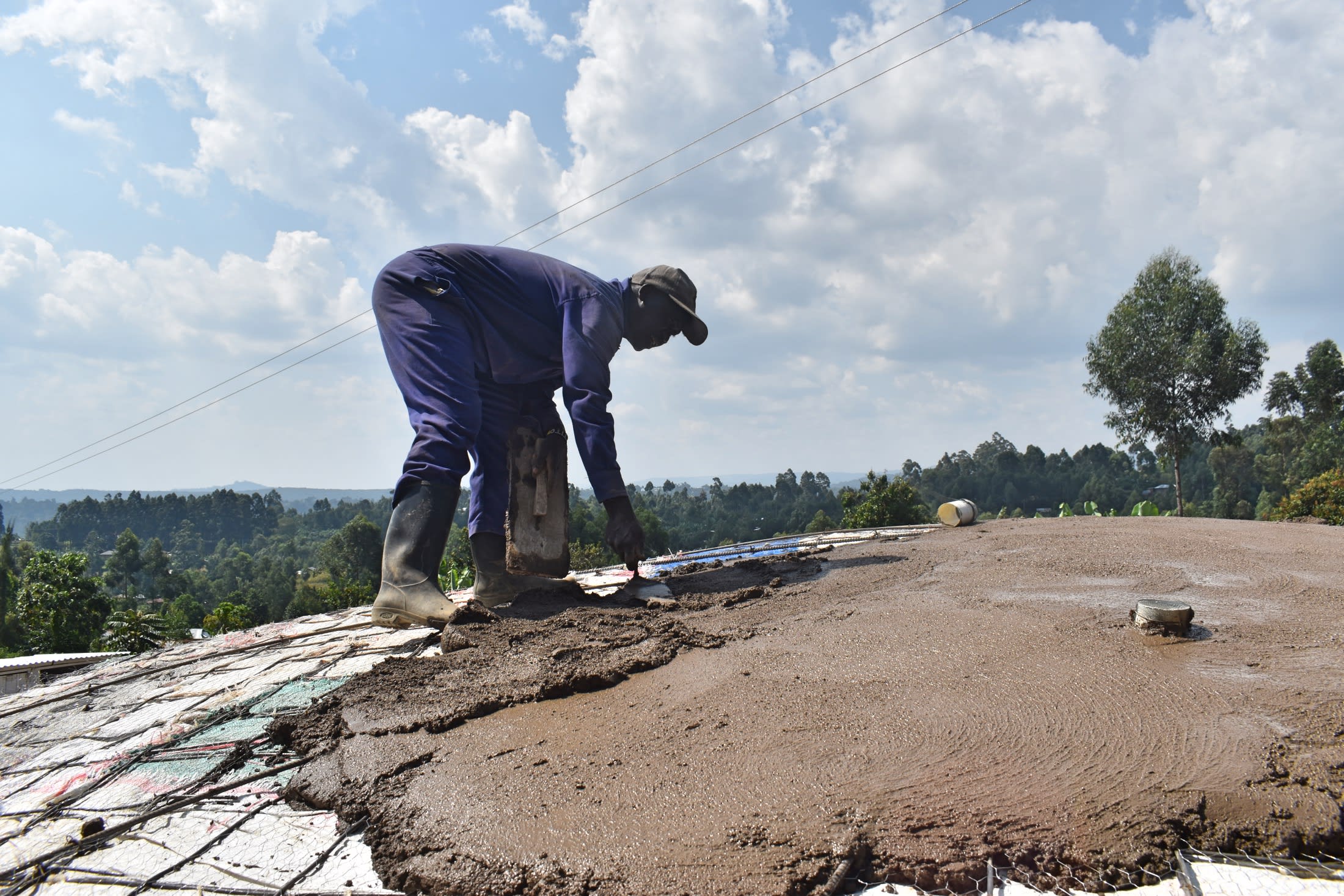
Then it was down to the finishing touches: fitting lockable covers over the tap areas, affixing the gutters to the rooves and tanks, and setting overflow pipes at the edge of the domes for when the tanks reach capacity.

Once finished, we gave the rain tanks three to four weeks to undergo complete curing. We removed the interior support poles and dome sugar sacks and cleaned the tanks.
Finally, we handed over the rain tanks to the school. Students and staff celebrated the presence of clean water on campus.

VIP Latrines

This project funded the installation of six new ventilated improved pit (VIP) latrines. These new latrines have cement floors designed to be easy to use and clean, locking doors for safety and privacy, and vents to keep air flowing up and out through the roof. With a well right on school property, there should be enough water to keep them clean.
Handwashing Stations
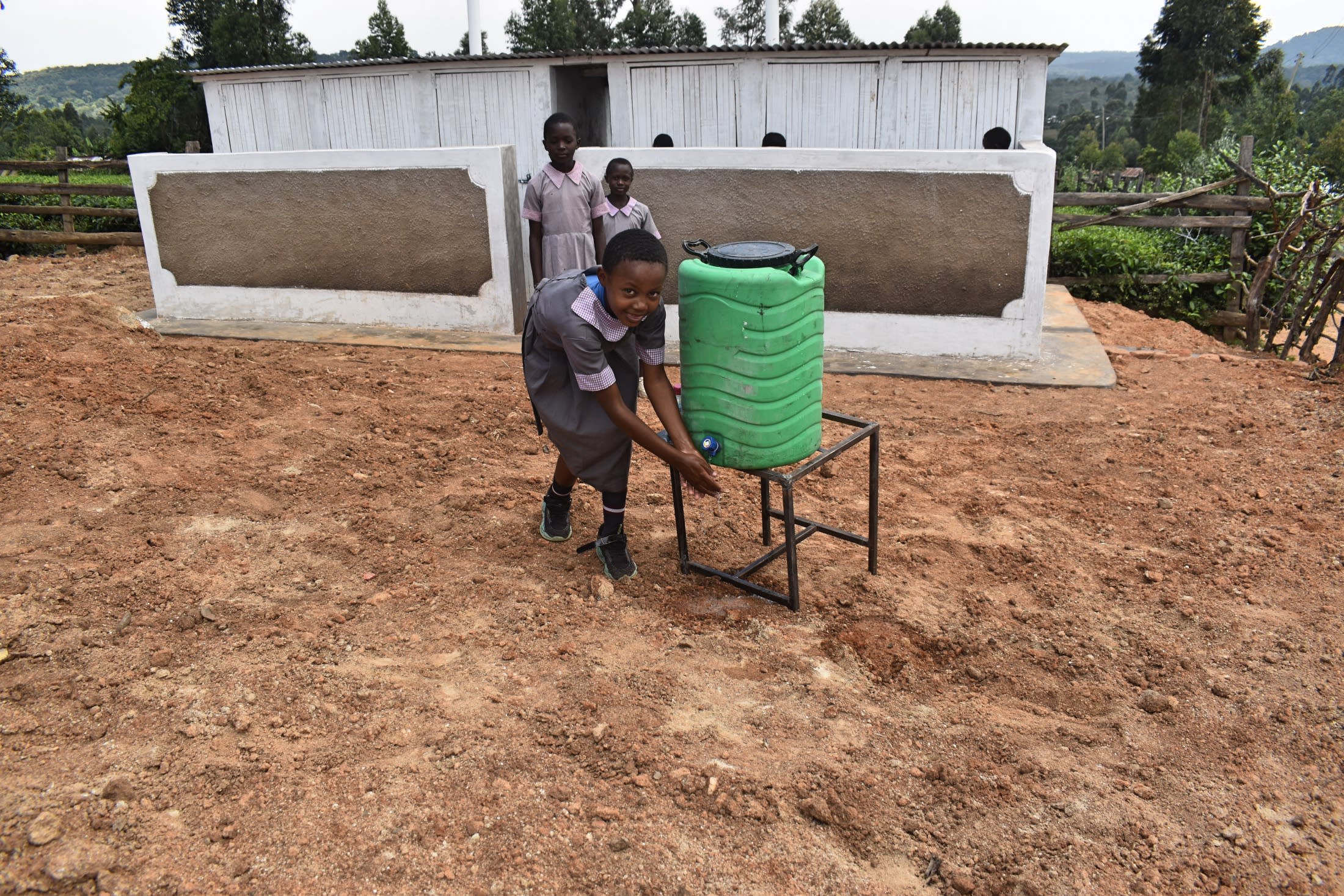
We set up two handwashing stations outside the latrines and handed them over to the newly formed student health club. Health club members will teach other students how to wash their hands at the stations properly, fill the stations with water, and ensure that there is always a cleaning agent available.
New Knowledge
We coordinated with the school's staff to schedule our hygiene and sanitation training. When the training day arrived, facilitators Nelly, Amos, and Mildred deployed to the site to lead the event. 25 students and teachers attended the training, which we held in the schoolyard under some shady trees.

We focused on personal hygiene, oral hygiene, and the ten steps of handwashing; environmental hygiene; child rights; operation and maintenance of the rain tanks, latrines, and handwashing stations; and leadership and governance. During the latter, the students elected their peers to lead their newly formed student health club.

Newly trained students!
The club will be significantly involved in the school’s water, sanitation, and hygiene project management. It will encourage good health and hygiene practices amongst their peers, teachers, and the larger community. By the end of the training, each pupil understood their role in sustaining clean water and good health within their school community.
The most notable topic was dental hygiene, during which students learned a lot about why they brush their teeth and how to do it without hurting their gums. One funny moment came when a facilitator asked students what they use to brush their teeth, and one boy said when he runs out of toothpaste, he just uses hand soap. The facilitators explained that the two are not interchangeable, and everyone got a chuckle from the misunderstanding.

Another funny moment was when the facilitator asked the pupils how many times per day they clean their bodies. One student said rather than asking how many times per day, they should ask how many times per week.

A student demonstrates washing hair.
"The training has been of great value to me," said Brighton (whom we spoke to earlier).
"Personally, I have not been aware of any steps of hand washing, [the] way of brushing teeth to avoid injuring gums, and the best or recommended toothpaste for brushing teeth. But today, I have learned the ten steps of handwashing with soap using running water as opposed to before where I have been used to washing my hands in a basin. Generally, knowledge gained will help me do things as required so as not to cause other problems or contract diseases."
Conclusion
This project required a substantial collaboration between our staff, our in-country teams, and the community members themselves. When an issue arises concerning the rain tanks, the students and teachers are equipped with the necessary skills to rectify the problem and ensure the water point works appropriately. However, if the issue is beyond their capabilities, they can contact their local field officers to assist them.
Also, we will continue to offer them unmatchable support as a part of our monitoring and maintenance program. We walk with each community, problem-solving together when they face challenges with functionality, seasonality, or water quality. Together, all these components help us strive for enduring access to reliable, clean, and safe water for this community.
With your contribution, one more piece has been added to a large puzzle of water projects. In our target areas, we’re working toward complete coverage of reliable, maintained water sources within a 30-minute round trip for each community, household, school, and health center. With this in mind, search through our upcoming projects to see which community you can help next!
Thank you for making all of this possible!

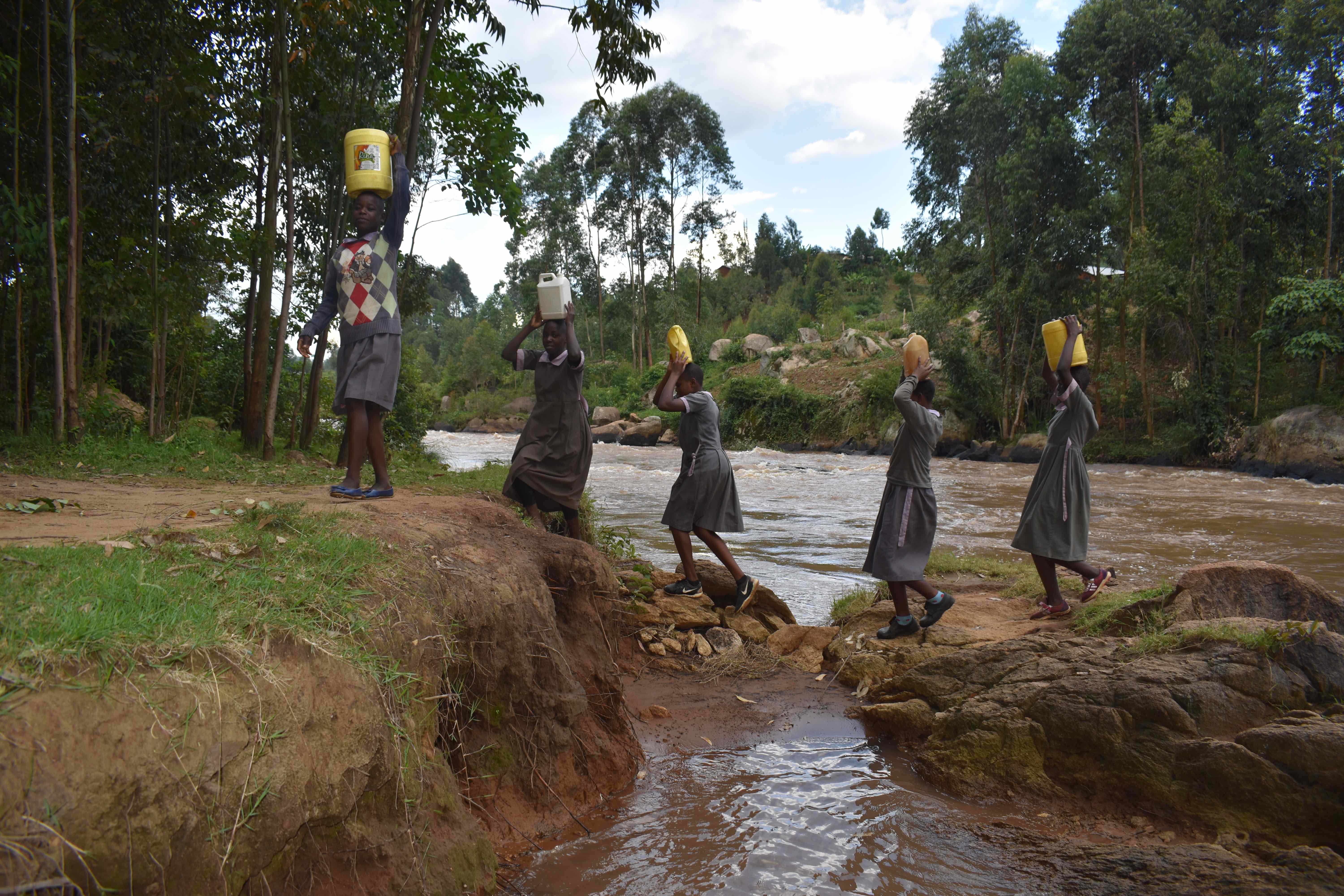
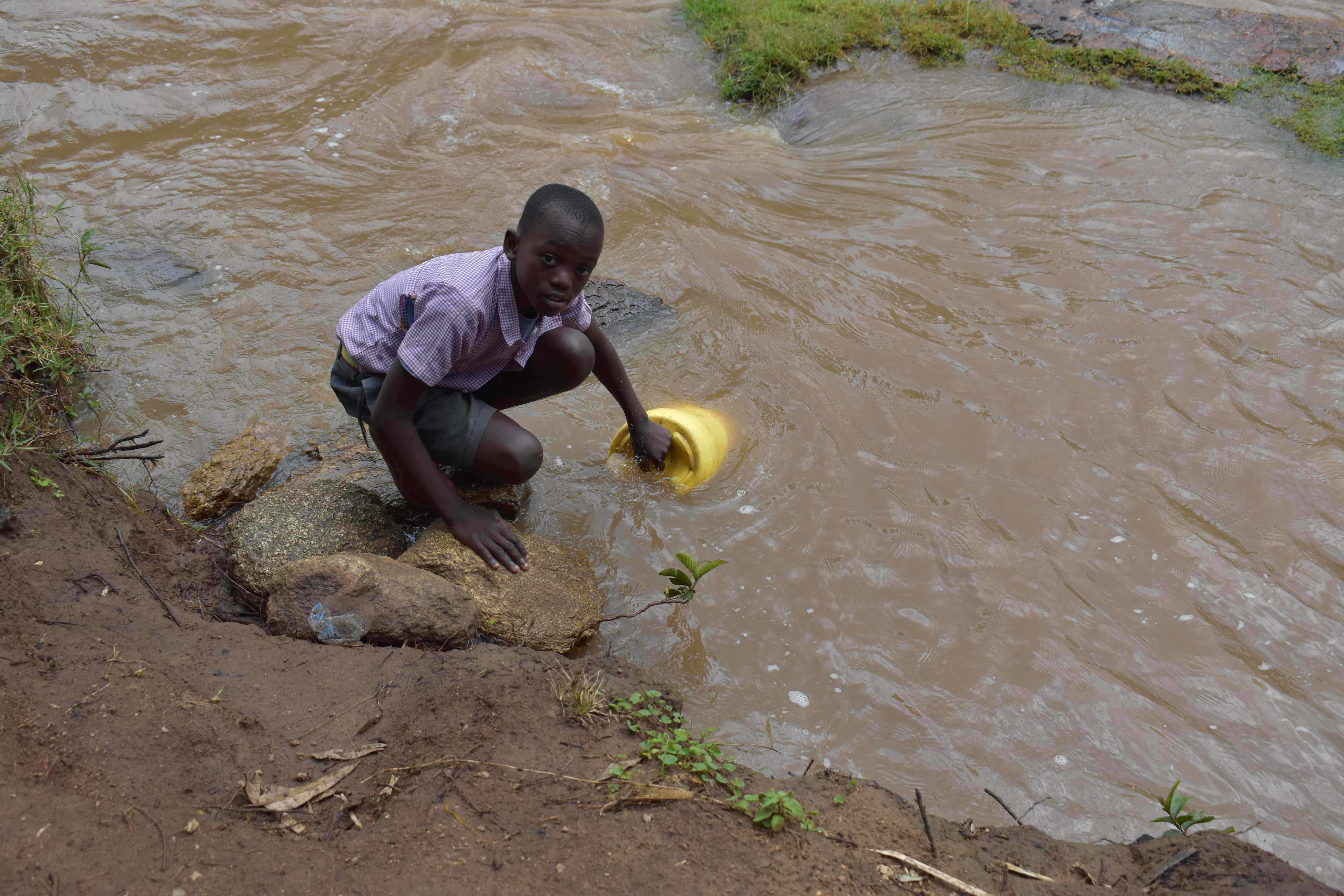

 Rainwater Catchment
Rainwater Catchment
 Rehabilitation Project
Rehabilitation Project












